Celebrating International Women's Day 2021
IAPA, Australia’s only analytics association, celebrates International Women’s Day with a spotlight on over 30 women in analytics in Australia; and support for the women’s scholarship program to study analytics at Kaplan Business School.
“Australian businesses can improve their competitive position by embracing diversity – especially in analytics, data science and machine learning. Just look at the women in the IAPA spotlight to see the value, insight and skill these analytics professionals bring to the table,” said Annette Slunjski, Managing Director, IAPA.
“No matter where in your analytics journey your organization sits – from “what happened and why” analysis through to advanced analytics that includes artificial intelligence using machine learning – improving team diversity will improve insights and outcomes.”
Get a foundational understanding of analytics - and save 20%
During March IAPA is offering 20% off the IAPA Analytics Fundamentals online course enabling those thinking of transitioning to an analytics career gain a foundation understanding of analytics without having to code, model or wrangle data. The 20% discount code is ChooseToChallenge and expires on 31 March 2021.
Join industry leaders discussing careers in data
Additionally, as part of promoting analytics careers, IAPA’s managing director, Annette Slunjski, is speaking at the Women in Data Science (WiDS) Sydney Festival from 8th to 12th March. Delivered virtually, the Festival includes a lunchtime keynote and evening workshop each day. The Friday lunchtime session, “Different Careers in the Data Realm”, features industry leaders from IAPA, LendLease, Teacher’s Health, Civita, Assignar and the Australian Computer Society.


The IAPA Spotlight on Women in Analytics
Listed in alphabetic order by last name.
Click on a name to understand each person's role, proudest moment, greatest challenges and advice for women thinking of a future in analytics.
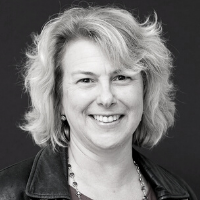
Theresa Anderson
Data & AI Ethicist, Freelance
In a normal day, what kinds of data / analytics activities are you involved in? Developing and delivering training on trust-building and ethics; Contributing to development of an international standard on data sharing; Writing position papers on data and data-informed technologies; Preparing research and policy work for publication.
What are the biggest challenges you face? Finding the right balance between upskilling in my specialist area while keeping sufficiently aware of developments in wider data practice domains to keep my skills transferable.
What would be the proudest or most enjoyable moment in your analytics career? Proudest moment to date was seeing the first wave of students graduate from a data science program I designed. A source of constant joy is sitting in the audience while someone that I have taught or mentored shines centre stage sharing their expertise with others.
What advice would you give to a woman wanting to get into the analytics industry? Data does not speak for itself; data analytics is as much about people as it is about data. Never under-estimate the importance of being able to use data to tell a compelling story that motivates action.
In terms of the future of analytics, what do you think will be the most interesting aspect/s? Issues related to equity and data justice will continue to grow in importance. As we continue to collect and use more data (especially in contexts of automated decision making), there is a growing need for diversity and inclusivity in our data/analytics activities. A more diverse talent pool will help widen our gaze so we are more capable of seeing who and what is missing, misrepresented or under-represented in that data.

Jolie Baasch
General Manager, New Business and Information Services, NSW Land Registry Services
In a normal day, what kinds of data / analytics activities are you involved in? In my current role, I have the fortunate opportunity to lead a team that is working with a diverse set of data that has previously been inaccessible. This involves working with structured and unstructured data to create insights and support data innovation in the NSW property ecosystem. We are using both 'tried & tested' as well as emerging methods to leverage our information stores (from paper to metadata files!) to support data-driven decision making. This involves the full gamut of activities, scoping with stakeholders, identifying data points, a lot of data wrangling, modelling, testing, visualising, etc. I am extremely lucky to work with a dedicated and talented team, and contribute to their development, as they contribute to mine!
What are the biggest challenges you face? The marketplace in which we operate is transforming to become digital, and data-driven insights are critical to that digitisation journey. There are lost opportunities in only replacing 'like for like', rather than leveraging data and analytics to improve outcomes. Many of the challenges are universal and not related to gender. However, we all like to feel that we belong, and diversity and inclusiveness helps this. It can be challenging to reach that critical mass, but when it is achieved, it is easier to maintain, and you are no longer the odd one out.
What would be the proudest or most enjoyable moment in your analytics career? As a young woman entering the traditionally male dominated industry of sports-betting, I arrived in the workplace ready to make magic with data and analytics - only to be met with skepticism and mild resistance. The Operations team were using tried and true practices passed down through the generations, and I was viewed somewhat as an interference. However, by showing genuine interest in learning about their practices, valuing their domain expertise and focusing on adding value directly to their work, I was able to reverse the situation to the point that my analytics expertise was requested, valued and operationalised into processes that the business came to rely upon. To be welcomed into 'the club' as a valued team member was as rewarding as the impact that my work was having on the business.
What advice would you give to a woman wanting to get into the analytics industry? There are now so many ways to enter the profession, which is good for the industry, as it brings diversity of thought. However, that means greater competition in the marketplace. My advice is to: Stay open to a variety of opportunities - Sometimes the more unorthodox roles provide the broadest experience, which will help you in your career. Attend and participate in industry forums, such as the IAPA, and connect with those that resonate with you. Networks are vitally important and are often an area that women do not prioritise, to their detriment. Back yourself - You may not yet have the SKILL, but if you have the WILL, that is more than half the battle.
In terms of the future of analytics, what do you think will be the most interesting aspect/s? An interesting and increasingly important area is the ethical use of data and analytics. As we know from some prominent events in recent times, society can believe that there has been an overreach, even when the application of the analysis has been legal. This is a tension that will play out more as more organisations harness data stores. The consideration given to bias within datasets will also draw attention due to the speed and automation in which analysis is now produced.

Leila Beiranvand
Customer Insight Analyst, ANZ
In a normal day, what kinds of data / analytics activities are you involved in? Customer behaviour Transaction.
What are the biggest challenges you face? Finding my voice And being taken seriously as a woman/minority in data and analytics.
What would be the proudest or most enjoyable moment in your analytics career? When I created my very first scoring model using Python. And definitely when I analysed the results of the campaigns that we run using that model.
What advice would you give to a woman wanting to get into the analytics industry? Be strong and resilience.
In terms of the future of analytics, what do you think will be the most interesting aspect/s? Data engineering and AI are the most obvious areas that will become more important. But I believe marketing and having business knowledge would become crucial for data excepts as well.
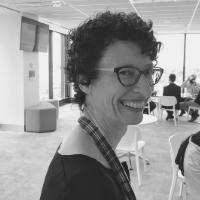
Janice Carey
Head of Analytics, Customer and Strategy Office, Bupa
In a normal day, what kinds of data / analytics activities are you involved in? My team and I deal with a wide range of analytics to enable outside-in insights about value through the eyes of our customers, market and opportunity identification across our businesses, and digital analytics.
What are the biggest challenges you face? Like every organisation there's the perpetual journey of broadening and deepening the data and definitions for the spectrum of descriptive, predictive and prescriptive analytics plus how we enable smart automation. The interesting challenges from there are always bringing the human element to life in the way we share information, co-create business value, and build trusted relationships and a common language to deliver business and customer value.
What would be the proudest or most enjoyable moment in your analytics career? Seeing the lights go on for a senior stakeholder on arriving an impactful visualisation that enabled him to get traction on a problem that he had wrestled with for years. It was the biggest wow moment for him, and one of those "overnight successes" that was actually six months in the making!
What advice would you give to a woman wanting to get into the analytics industry? Invest in yourself, listen to learn, and find your voice. Build your soft skills in addition to your analytics domain expertise.
In terms of the future of analytics, what do you think will be the most interesting aspect/s? Emerging roles for Data Translators Simpler, more convenient, more relevant outcomes for customers, powered by analytics.
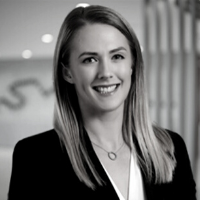
Amy Chadwick
Senior Data Analyst, BDO Brisbane
In a normal day, what kinds of data / analytics activities are you involved in? In our Data Analytics & Insights team every day is different. We can be building a data warehouse to combine multiple data sources for a private sector client; or running workshops to determine the data governance structure of a large government organisation. I'm involved in all aspects of an analytics project, from scoping up the solution with the client (determining 'the why' that answers their business problem) to getting down into the detail and writing the code, performing the ETL or building the visualisation; to producing and presenting the final written report or presentation. Each day will involve collaboration with my team, whether that's brain storming and designing our ideas at the start of a project, or QA and testing each others work.
What are the biggest challenges you face? Usually the biggest challenge I find is around setting realistic timeframes for myself - since we are always using new technologies it's hard to predict what bugs might hold you up in your code! I start the day thinking I'll have finished XYZ by midday and it soon drags on to the end of the day.. and then you need time to incorporate peer or client feedback. I'm learning to always overestimate how long I think it will take, and make sure I communicate early if I don't think I'll hit a deadline, but it's tricky to balance when you want to keep everyone happy.
What would be the proudest or most enjoyable moment in your analytics career? My proudest moment was teaching myself how to use SQL and Tableau when I was an account manager at my previous employer so that I could provide insights for our clients through dashboards that updated automatically. Using data was something that the company hadn't utilised to its full potential at this stage, so it was great to see my team's reactions and how happy everyone was to get involved and begin to understand/use their data. It then gave me the opportunity to be promoted into a newly created data SME role so this really was the start of my analytics career.
What advice would you give to a woman wanting to get into the analytics industry? Do it! You won't regret it. It's a challenge that is evolving every day and there's so much to learn so you?ll always have opportunities if you're willing to be flexible and adapt quickly. Ask questions - never just do an analytical piece of work 'for the sake of it'. Understand the business drivers and why the request has been made. The more you understand the context the better you can design your solution. Test, QA & think of making anything easy and fit for purpose for the user. Don't be afraid to be wrong! Keep an open mind and be open to feedback. There's so much to learn!
In terms of the future of analytics, what do you think will be the most interesting aspect/s? I am excited to see how Big Data and AI continue to evolve and can't wait to see which manual processes and aspects of our lives can continue to be automated! I'm a big believer of finding the most efficient way to do something and this is so powerfully done through analytics. I'm also interested to see how these technologies can be implemented in the public sector to make a real difference to people's lives, for example, freeing up time spent on manual processes in the healthcare sector so that employees can spend more time treating patients.

Lena Chen
Financial Data Modelling Analyst, Propsa
In a normal day, what kinds of data / analytics activities are you involved in? Tableau data visuals databricks data mining.
What are the biggest challenges you face? Understanding how tables are related in the warehouse and what fields to use.
What would be the proudest or most enjoyable moment in your analytics career? Creating a dashboard For the cco.
What advice would you give to a woman wanting to get into the analytics industry? Self learning to get ahead.
In terms of the future of analytics, what do you think will be the most interesting aspect/s? The cloud and data on cloud.
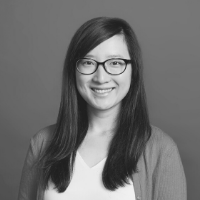
Sijing Chen
Manager, Taylor Fry
In a normal day, what kinds of data / analytics activities are you involved in? My typical day varies depending on the client project I'm working on. Over the past few months, I've been building demand models for an insurance provider to gain insight into customer behaviour. This involves - Data exploration. The first step, where I gain an understanding of the main characteristics of the data - Data pre-processing. This is about cleansing the data to transform it into a form that can be readily used in subsequent modelling - Applying machine learning techniques. These analytics approaches help me predict customer demand behaviours, such as likelihood to purchase or renew policies - Reviewing. Lastly, I scrutinise the reasonableness of the outputs of my demand models, and communicate the business impacts to the client and wider stakeholder group.
What are the biggest challenges you face? The increased use of analytics has undoubtedly generated immense value for society, but it can also lead to unintended outcomes if used inappropriately. One example is algorithmic bias, where computer systems produce unfair outcomes for particular segments of the population. It can show up in many forms, such as racial bias or age discrimination and can emerge in many different ways. Some unfair outcomes are much harder to detect than others, and one of the challenges I face on analytics projects is to identify and reduce these difficult-to-find biases from occurring.
What would be the proudest or most enjoyable moment in your analytics career? I was part of the Taylor Fry team that worked on the life-course modelling of vulnerable children in NSW for the Government's Their Futures Matter initiative. The analysis used a linked dataset that covered multiple government service streams (such as child protection, education and justice) to project the service usage pathways of children in NSW based on their unique circumstances. The insights generated by the project are used by government agencies to design intervention strategies that can better support the children and families with the greatest needs. Working on this project made me realise the broad applicability of actuarial and analytics skills, and that I'm in a position to help make a practical difference in people's lives. It was such a rewarding way to give back and contribute to society.
What advice would you give to a woman wanting to get into the analytics industry? Soft skills are just as important as technical skills. Being able to perform sophisticated analysis is not useful if you're not able to communicate it and persuade others of the results. You'll get plenty of opportunities to develop your technical skills throughout your career, but it's easy to neglect your communication skills. Being able to share your ideas with a colleague, and present insights to management or clients, is vital.
In terms of the future of analytics, what do you think will be the most interesting aspect/s? Improvements over time in data storage and extraction mean a richer and more diverse range of data will increasingly become available to enhance business and government organisations. This coupled with developments in technology and analytical techniques will see further integration of analytics into our daily lives and the problems we face, with solutions we could only have imagined before. It's such an exciting time to be working in analytics and play a part in this transformation.

Sveta Freidman
Data Analytics & Science Director, Carsales.com.au
In a normal day, what kinds of data / analytics activities are you involved in? My day to day involves in all aspects of the data. I enjoy to enable data driven decisions through developing data platforms, ability to access prompt insights and creating data solutions through AI & machine learning models to enhance better products and customer experience. I love to develop and implement data and an experimentation strategy across the company and improve our data culture through organisation.
What are the biggest challenges you face? My biggest challenge is developing and optimising data maturity across all aspects of product, marketing and customer experience in the company.
What would be the proudest or most enjoyable moment in your analytics career? My most proudest and enjoyable moment is developing greatest, smartest and highly capable data teams who are enabling data driven decisions and products in the company.
What advice would you give to a woman wanting to get into the analytics industry? The most important is to have a passion and love to the craft you are doing. Data field is great and there is always a need for someone smart like you 😊
In terms of the future of analytics, what do you think will be the most interesting aspect/s? Data field has been transformed substantially during the last several years, there are a lot of different tools, platforms, which will help us to develop data solutions. The most interesting aspect of the analytics in the future is still to provide insights, which will enable a competitive advantage, but the way we are going to enable it is going to be very innovate and speedy.
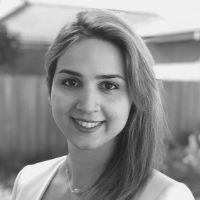
Mohadeseh Ganji
Head of Data Science & AI, ANZ
In a normal day, what kinds of data / analytics activities are you involved in? I have the pleasure of working with an amazing team at ANZ bank addressing complex business problems and supporting end-to-end home loan journey for our customers, using the power of data and data science. This means the type of analytics activities that I am involved in, spans from reporting/BI and data analysis to advance Artificial intelligence products in every stage of home buying journey, including:
- Helping customers searching for properties, with most accurate free property price prediction platform (Realas.com) powered by advance machine learning engine.
- Application of descriptive and predictive analytics in marketing domain, enabling personalised marketing and propositions.
- A suit of BI and management reporting providing timely actionable insight for business decision making
- Forensics analytics and remediation, ensuring a well-managed product suit is delivered and mistakes of the past are remediated in a scalable manner
As head of data science, an important part of my role is to set and execute data strategy and uplift data analytics capability in the bank. To ensure the data analytics unlock value and sustainably deliver impact, part of my day to day activities are ensuring innovation with data is embraced, analytics solutions are adopted smoothly and the analytics capability is uplifted across the business.
What are the biggest challenges you face? Maintaining a balance between fixing data quality and availability issues, building and uplifting foundational and strategic data capabilities and infrastructure, while at the same time delivering maximum impact and value at scale and in timely manner through data analytics, is a rewarding challenge a lot of data leaders like me are facing.
Another challenge is finding and retaining a diverse group of talents in the field. Despite all the good work gone in promoting diversity and inclusion in the field of data analytics, we are still far from where we need to be. On the other hand, the fast pace of excitement and demand in the field of data science and data engineering, makes talent retention one of the challenges for many organisations.
What would be the proudest or most enjoyable moment in your analytics career? I believe success should be celebrated, big or small. With that in mind I have had many proud moments in my career so far and certainly expect many more to come. Having worked in a few different industries, I am proud my efforts and leadership has made a difference in various business contexts:
Seeing my former MBS students or my mentees taking on senior roles is such rewarding moments. Seeing the impact of my data team’s work on making the field-work on power stations safer and more efficient at AusNet Services, as well as enabling an efficient energy management for renewable energy hubs in Mondo, has been most enjoyable. Being able to help many customers with financial difficulties during covid at ANZ bank, leading my team of now 50 passionate and talented data professionals delivering multiple business critical initiatives and making a difference in every step of customer’s home buying journey, all while working remotely in last 1 year, makes me so proud and pleased.
All these success stories as well as the opportunity to learn from great leaders throughout my career, have led into being honoured to receive multiple industry awards in my career, including women leading tech award by B&T and IAPA top 5 analytics leaders of Australia.
I look forward to many more opportunities to learn and teach, inspire and be inspired, and make a difference.
What advice would you give to a woman wanting to get into the analytics industry? Part of the advice I would give her would be no different to my advice to men wanting to enter the field, and those are being ready to learn every day and getting their hands dirty with data crunching, and telling stories with data. The additional advice I would give to a woman wanting to get into the analytics field is to fully believe in herself and her capabilities, and when ready, never hold back in stepping forward in her career.

Thasmika Gokal
Cloud Solution Architect (Data & AI),
Microsoft
In a normal day, what kinds of data / analytics activities are you involved in? On a day-to-day basis, I work with Microsoft's incredible ISV partner ecosystem in designing their data, AI and ML solutions. Each day is completely different; one day I might be architecting computer vision containers on edge compute devices and the next, I'll be working on security in a PowerBI embedded application. It's a real privilege to be involved in a breadth of data and AIML activities every day.
What are the biggest challenges you face? Keeping up with the rapid pace of innovation; technology evolves very quickly and it keeps me on my toes.
What would be the proudest or most enjoyable moment in your analytics career? Researching quantum computing algorithms in finance, specifically around credit risk analysis and option pricing.
What advice would you give to a woman wanting to get into the analytics industry? Embrace every opportunity in the industry that excites you. Don't let the fear of rejection make you self-reject. Reach out to other women in the industry and grow your own sisterhood. Know that you can achieve anything you set your mind on.
In terms of the future of analytics, what do you think will be the most interesting aspect/s? As industries and companies data estates/platforms mature, we'll be seeing an increase in accessible high-quality training data, specifically from the health and utilities sectors. So, I'm excited to see how companies leverage agile MLOps practices and rich AIML components, like reinforcement learning or generative models, to create real value and scale during the face of rapid digital transformation. The future is indeed bright.

Brittany Grant
Senior Analytics Partner, QBE
In a normal day, what kinds of data / analytics activities are you involved in? My job is multi-faceted, so each day is different. The majority of what I do is translate analytical projects or principals to the business taking them on an analytics journey from hypothesis to outcome. My role includes deciphering a complex business problem, and translating it into tactical and strategic business solution. I work with our data scientist on our data and analytics projects as a product owner and project manger.
What are the biggest challenges you face? As someone who came into the role without a data and analytics background, rather a technology and delivery background. Expanding my Analytics technical literacy while also delivering fast paced and highly technical analytical projects is definitely a challenge.
What would be the proudest or most enjoyable moment in your analytics career? Delivering my first analytics based project and to see it give real tangible benefits to the business. The most enjoyable part of my job is my team. They are the best bunch of highly intelligent and wonderful people, I couldn't have asked for better.
What advice would you give to a woman wanting to get into the analytics industry? Just do it. It's not scary, and we need more female representation. There is a big future in Analytics, and there are lots of areas that you can get your teeth stuck into, so you will always have an interesting problem to solve.
In terms of the future of analytics, what do you think will be the most interesting aspect/s? For me personally I think the growing field of behavioural data science is something that will be really interesting. The merging of behavioural sciences like psychology and sociology with data and analytics to better understand human decision making.
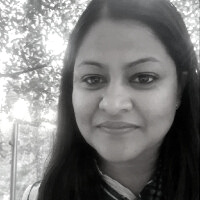
Shveta Gupta
Manager - Data Science and Analytics, Data Analytics Centre - Department of Customer Service (NSW Government)
In a normal day, what kinds of data / analytics activities are you involved in? I work for the NSW Data Analytics Centre and we are a small group of specialized data people doing a range of things on a typical workday. We work in an agile environment where we typically start the day with planning for the day's work across an iteration with all data teams around acquisition and governance, data engineering, and the leadership team. Post the standup, we have a brainstorming session with the analysts and scientists to plan the work and storyline the flow on how it fits with the larger business picture. Once these sessions are done and the team has a work plan for the day, I am either doing a piece of analysis myself that has been allocated or there might be a meeting with other government agencies on trying to onboard them onto a data journey and how analytics and data science can help them with their policy challenges in the longer run. I also support a PaaS ( Platform as a Service) offering that the DAC has for other government agencies that use our analytics platform for their business analysis needs. This requires me and my team to conduct sessions across the clusters to keep the analysts and scientists apprised of the latest that we have to offer in the space. Some days are hard than the others, but this role has been more than satisfying always.
What are the biggest challenges you face? The biggest challenge I face in my current role is aligning the analytics and the data science solutions that we build with a business outcome. The quote I hear often is "Can you find something interesting with our data" and we sure can find a lot of things interesting from our perspective, but lack of direction from a business side of things makes it challenging. Another challenge in the space has been the quality of data and how well it can align with being able to answer the question we want the data to answer. Departments and agencies are responding positively, but the challenge is always how well is the data managed and governed and what is the right balance between governance and relevant use of the data.
What would be the proudest or most enjoyable moment in your analytics career? The most enjoyable moment for me in the career was when I presented insights around Mobility in the state to the Premier at the Crisis Committee during COVID-19 last year. I have been a part of the COVID-19 data response team and have been trying to answer some of the most pressing questions around mobility, spend and its impacts during the pandemic. It was a proud moment because within a span of 3 days we were able to build a picture around the mobility of the state aligned with the COVID case locations which just set the stage to recognize the value that data could bring into the COVID-19 response of the state.
What advice would you give to a woman wanting to get into the analytics industry? My advice to any woman who wants to enter the space of analytics is to think of it as just a game of numbers and take that first step. It may seem hard from the outside, but it isn't. Also having a well-balanced network in the domain helps with the support and the nudge you might need to enter and thrive in the space. The only other thing to be mindful of here is the velocity at which this industry is changing and hence keeping yourself relevant is a conscious effort that you will have to undertake always.
In terms of the future of analytics, what do you think will be the most interesting aspect/s? I think the future will sway more towards prescriptive analytics where data does not just predict what will happen in a company or an area, but scenario building can also let you plan on how it could be improved if you tweaked certain parameters. Beyond providing information, prescriptive analytics goes even one step further to recommend actions you should take to optimize a process, campaign, or service with acceptable confidence intervals.

Sandhya Iyer
Head of Analytics and Insights, Latitude Financial Services
In a normal day, what kinds of data / analytics activities are you involved in?
1. Work with commercial business (marketing, product, sales & partner) teams to understand their priorities and help them a) solve some of their problems b) highlight some opportunities using data & insights
2. Lead a team of data enthusiast from analytics to data scientists to managers to help them with - OKRs, Prioritisation and managing workload - Continuous 2-way feedback and coaching to help with development needs - Telling story with data - Encourage curiosity and explore new ideas to innovate in the Data science, Machine Learning and AI space
3. Work with the Chief data Office leadership team on improve team culture, develop identity and build data culture across the organisation
4. Prepare Business cases and board papers to secure investment for data initiatives
5. Work with product teams to build use cases on how data can help deliver hyper personalised product recommendations and communications and elevate customer experience
6. Project manage delivery of key Data programmes of work such as Personsalisation, customer cross-sell through a cross-functional team.
What are the biggest challenges you face?
1. Whilst data literacy is something that is talked about more commonly these days, not many organisations have really unlocked the full potential. In my current role one of the biggest challenge I face is to help people embrace science backed, insights driven decision making in making day to day decisions. Data and Insights are looked upon more as validators of ideas/decisions as opposed to creators or challengers of ideas
2. The second biggest challenge is to promote and develop Story telling as a key skill set in data professionals. Deciphering data, making inference to the problem at hand and recommending solutions highlighted by data is where the future for data professionals lies. No algorithm is good enough if you cannot explain what problem it is solving and what benefit it is driving
What would be the proudest or most enjoyable moment in your analytics career?
1. In 2020, post pandemic breakout, whilst businesses were struggling to stand on their feet, I helped developed a business case that ticket 3 most important aspects of growth for the business: Strategic alignment with the future
2. Developing the first ever Machine Learning Model for the business hence enhancing the much desired future capability
3. Customer centric, cross-product and cross-functional ways of working
4. Delivering customer and commercial value I came up with the business case and built a Customer Graduation programme which allows customers to navigate easily through Latitude's product suite and recommend them the one that fits their requirement the most. The MVP broke even on investment and helped secure a persistent investment from the board to develop a more sophisticated programme over next 2 - 4 years.
What advice would you give to a woman wanting to get into the analytics industry?
1. If you love Maths, you will love this career. But also, analytics is not all math it is also about how creatively you can apply data and insights to solve real life problems. So if you like solving problems, this is a career for you.
2. Be willing to be an eternal learner as this world keeps changing and upgrading every minute and hence requires you to be upgrading too
3. Curiosity is good, it drives innovation so never be afraid to challenge the status quo. Data definitely knows better.
4. Don't be afraid to raise your voice. Back yourself. If you are an introvert ( which most of us are), find a good mentor from the industry to help navigate through your career. Trust me you can be introvert and still successul
In terms of the future of analytics, what do you think will be the most interesting aspect/s?
1. Auto ML and Auto AI are spoken about a lot but still fairly new for majority of the businesses. How might be implement Auto ML at scale using the power of Cloud based technologies but in a secure and ethical way is going to be an interesting space to watch out.
2. From a skill-set perspective, the lines between roles of analyst/data scientist/data engineer are becoming blur and the concept of full stack data scientist is emerging. Which is somewhat dangerous as we ask for a recipe with every single ingredient possible but thinking more holistically this is a model where where defining problem, collecting and transforming data, running models and deploying them in production can all be done by the same person or group of people hence reducing hand-offs and latency.
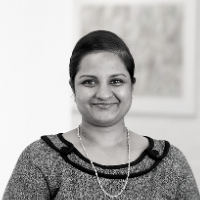
Su Jella
Analytics Manager, Bureau of Meteorology
In a normal day, what kinds of data / analytics activities are you involved in? I manage a range of activities leading the Digital Analytics function at the Bureau - delivered a Bureau-first Data Analytics roadmap - building an analytics technology hub (a Bureau-first initiative), to drive and deliver advanced analytics, machine learning and AI capabilities through digital technology - Managing and delivering Customer Experience Analytics initiatives that enhance and support services for customers - overseeing various data models built by my team to support analytical delivery - reviewing NLP models to drive insight into customer experiences and interactions with Bureau services - managing KPIs and objectives that I developed and delivered in the Analytics roadmap - driving and delivering insight on digital analytics to drive decisions, projects and priorities - mentoring and coaching my team in delivering our strategic objectives in Analytics - assessing and learning about various cloud technologies and trends in the market that can enhance and improve the analytical services that myself and the team provide to the organisation - building and developing analytical processes that refine and provide strategic insights to Bureau initiatives.
What are the biggest challenges you face?
- manual management of data
- sourcing the right talent for data initiatives
- decentralised data
- managing the lifecycle of data
What would be the proudest or most enjoyable moment in your analytics career? I've really enjoyed working in my current role at the Bureau of Meteorology. I've been given the opportunity to lead the Analytics function and work closely with a number of Digital leaders in my group. It's been the highlight of my career to work in an organisation that values innovation and uses data for the greater good of the community. I've been able to harness my skills and capability to deliver sophisticated and a first in class service on a lean budget to achieve outcomes. This role has enabled me to be an authority in customer analytics and has also given me the ability to build an Analytical hub from the ground up using various tools and resources. I've been able to grow my leadership, management and technical skills in a short space of time, but most importantly learn that even on tight budgets huge goals can be achieved that add value to an organisation's service.
What advice would you give to a woman wanting to get into the analytics industry? There is great opportunity to deliver a hybrid skills set in an organisation. As a woman leading in a technical field, I've grown to learn that it is important to grow your soft and hard skills in business. The world we currently live in is constantly changing and keeping abreast of it can also be challenging. Find an area of Analytics that you enjoy and continue to develop and learn how to stand out in that field. I am a STEM ambassador, and am fortunate to be in a position to support young girls to learn and develop their skills in technical roles. In today's world, we are all provided with many opportunities to learn from various channels, and this is the best way to acquire and build knowledge in areas of interest. So my best word of advice is never stop learning! Everyday you will learn something new that will add value to your knowledge base.
In terms of the future of analytics, what do you think will be the most interesting aspect/s? Artificial Intelligence - is the new frontier of technological innovation - we've only just begun to learn more about AI. In the future, we will definitely be looking at smarter, faster and more responsible AI Internet-of-things - With the expansion and roll-out of 5G across the world, this capability is only going to keep growing and expanding into all aspects of our lives, again we've only just begun to understand the potential of data in this space. Augmented Data Management - I think we will eventually see the demise of manually managing data and see a more sophisticated method of diversifying, integrating, reporting, managing and presenting data across our systems.

Duhita Khadepau
Director - Analytics and Data Science, Assignar
In a normal day, what kinds of data / analytics activities are you involved in? My everyday involves working with the C-Suites, Product managers, Sales Representatives, Customer Success managers and Data teams to help deliver data products and build our internal analytics platform. This begins with me working with our executive team to set up a big picture of the vision, priorities, strategy and execution for the data and analytics landscape across the entire company. This leads to working with the product managers to perform opportunity assessments on new data product ideas and features. Following this, I work with the data teams to create specifications and continue working with them to build on those opportunity assessments. I then organise time with our Customer Success teams, to help train the trainers, work with our sales teams to set up a sales strategy and finally work with our marketing team to set up a Go-To-Market strategy for those data products. Alongside this process, I also work with the data teams on continuously building and improving our analytics platform which tracks and showcases key SAAS metrics across the organization.
What are the biggest challenges you face? As a data professional there are many risks and challenges but the one that permeates everything is TRUST. Whether you build a data product for your customer or do any analytics work for your organisation (which makes them your internal customers), you cannot afford a loss of trust in your data and data products. Thus, in order to maintain strong levels of trust, it is imperative to ensure that Data Governance practices are set up well and are robust. This is a vital practice to ensure that everybody who is using your data to make decisions can TRUST it.
What would be the proudest or most enjoyable moment in your analytics career? My proudest and most enjoyable moment was when I was ranked #5 Analytics Leader in Australia by IAPA - Institute of Analytics Professionals of Australia, for 2020. It was an electrifying moment for me as, until that moment, I never thoughtI would find myself side-by-side with some of the great leaders in this discipline. I was humbled when the Analytics community came together to validate my entire journey so far and all the hard work I have done to reach this position. This honour was followed by the 'Most Innovative Employee' award, which I received at the Assignar annual awards ceremony. This award was received for solving and building data products which are now helping our customers in the construction industry. This quest for creating Data products which help solve customers real world problems is a truly rewarding journey.
What advice would you give to a woman wanting to get into the analytics industry?
Work hard, work smart, know your craft and be stellar at what you do. Then the sky's the limit.
Don’t always worry about following the latest fad such as ‘smart’ technology or machine learning or artificial intelligence. Take a moment to think if you are actually solving a customer's problem.
Don’t care about being perfect. I’ll always remember this invaluable lesson that one of my previous bosses taught me; “PERFECTION IS AN ILLUSION”. Don’t spend too much time making a model, analysis or visualization perfect. Speed is equally important else your data will lose value.
Tech skills are not the only skills you should know. You should be able to convert from geek speak to management talk seamlessly. Communication for any data analyst or scientist is the key to success. No one is interested in the model, everyone is interes
In terms of the future of analytics, what do you think will be the most interesting aspect/s? I am personally fascinated with the possibilities that deep learning (neural networks and AI) holds across industries when used ethically and for solving a genuine business problem. I aim to help realise its potential in mainstream businesses and intend to continue this quest for knowledge and discovery with an Industry PhD in the field of Neural Networks and Project Management starting this year. I am really interested in this concept as it's a perfect opportunity to work at the intersection of Academia and Industry. Academia has the skills and the know-how and industry has real data and an opportunity to implement this to help solve real world problems.
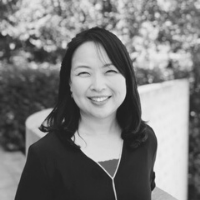
Ji-Hyun Kim
Director, Data & Analytics, Optus
In a normal day, what kinds of data / analytics activities are you involved in? I lead a team of data & analytics specialists, working as a team on a variety of initiatives including ingesting, building and operationalising data assets on data platforms and engaging with business stakeholders to identify and solution for consumption use cases such as analytical models, visualisation and supporting business operational tasks.
What are the biggest challenges you face? Managing constant variance in data quality, ensuring we build solutions that mitigate these risks, and form processes that manages the risks with quality issues as much as possible. I feel its really important that we keep assets we build whether its data in data repositories, visualisation, or analytical models with the quality of data that sustains the value it delivers to the users. In a large organisation generating lots of data, this is quite a challenge!
What would be the proudest or most enjoyable moment in your analytics career? I love working as a team, and its a real sense of achievement and pride, when I am part of a diverse team delivering a complex data transformation project, or contributing business value through analytical insights, or simplifying business processes through automation of decisions. I find it personally rewarding, when I can coach and help team members develop new skills and stretch themselves so we can share successes together and learn from failures. There's nothing more satisfying than being part of a great working team that has a diverse range of skills and experiences leveraging each others strengths, supporting weaknesses and work to common goals.
What advice would you give to a woman wanting to get into the analytics industry? Take that first step. It can be quite daunting to get out and grab that project opportunity, or commit to a technical course, or apply for the job of your dreams.... and don't give up! It'll also be helpful to find a mentor who can provide some guidance, and/or a buddy to keep you motivated through the challenges along the way. And if you need to, have open conversations with your family so you are able to balance your personal and professional life embarking on a new career path.
In terms of the future of analytics, what do you think will be the most interesting aspect/s? The unknown opportunities that advancing technologies will provide. Analytics will be the backbone to Industry 4.0, and the use cases that human society will discover that will shift the essence of how we live gets me quite excited about what the future will hold. Also, as a mother of a young daughter, I see a significant focus on encouraging girls in building interest in STEM subjects from school age, which I hope will result in a much more gender balanced profession. I would love to see how this add richness and value into the profession in years to come.

Pris Lam
Data Analytics Consultant, The Data School
In a normal day, what kinds of data / analytics activities are you involved in? I work in the business intelligence front helping my clients develop and communicate data-driven business insights. My role usually involves the end-to-end analytics process. This means starting activities including requirements gathering and data manipulation through to the presentation and deployment of dashboards to stakeholders. With a background in learning and development, I'm also involved in analytics training and deliver customised Tableau and Alteryx trainings workshops.
What are the biggest challenges you face? While data analytics as an industry is quite diverse, female leaders within the industry are less visible. I think there is a gap between industry demographics and those being promoted or in leadership positions. As the industry building algorithms and statistical models with compounding effects on society, I believe it's even more essential that we tackle our own systematic biases first.
What would be the proudest or most enjoyable moment in your analytics career? One of my proudest moments was early last year when I produced dashboards for one of Australia's largest retailers to respond to COVID19 cases and protect their customers and employees. Despite the rapidly changing situation with COVID19, we were able to promptly pull together actionable reports allowing the business to distribute PPE and prepare proactively.
What advice would you give to a woman wanting to get into the analytics industry? Analytics is a great space to be in with many avenues to get into the industry - whether it through formal or informal analytics training. There are great support groups focused on women in analytics and tech too. The first step is getting started!
In terms of the future of analytics, what do you think will be the most interesting aspect/s? I'm particularly interested in how data privacy, ownership and cyber security will pan out. With increasing data volumes, there are growing challenges around data ethics and how we can utilise data in a net positive manner.
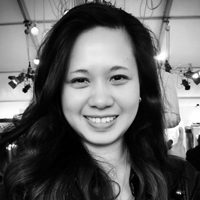
Karen Lauw
Analytics and Optimisation Manager, Salesforce
In a normal day, what kinds of data / analytics activities are you involved in? On a daily basis, I am involved in digital analytics as well as data analytics. This involves leveraging multiple platforms from various third party vendors, and typically make a connection between the two datasets. This daily effort is not only to deliver reporting, but also to optimise our digital channels through A/B testing and tell the story to senior leadership on how our efforts are making difference to the business.
What are the biggest challenges you face? With the multiple and many platforms within the tech stack of digital landscape, you can't avoid but to be manual since these platforms do not integrate with each other. Any opportunity that we have to automate our work, we will always look for that however this is a rare occurrence and time is typically consume in putting data together where we prefer to take the time to tell the right story to our stakeholders.
What would be the proudest or most enjoyable moment in your analytics career? The most memorable and enjoyable moment in my career is when we collaborate with other teams within the company, whether it is with other sales teams outside the online sales team, or collaboration between sales and marketing. We truly make an impact to business when we work with other teams to uncover an insights or gems that we were not aware of, put learnings into actions, or even to align to the same one source of truth to see our business performance end-to-end.
What advice would you give to a woman wanting to get into the analytics industry? Don't be afraid or intimidated or pressured by your colleagues or stakeholders. As long as you've identified that your passion is in analytics, believe in yourself that you bring the truth to the business, whether that is good or bad news, because data doesn't lie. Analytics is how we confirm gut feels and removes non sense.
In terms of the future of analytics, what do you think will be the most interesting aspect/s? Explore into AI and ML and how these can intersect and benefit all other aspects of analytics. Data science is core to analytics and I wish that there is a smarter way to embed this into our daily lives to make generating insights smarter and faster, and we are therefore more advanced and making more impact to business.

Ruth Layton
Data Governance Manager, WorkSafe Victoria
In a normal day, what kinds of data / analytics activities are you involved in? Governing the Data lifecycle.
What are the biggest challenges you face? Unknown data quality. Unknown data origination. Poor business process that impacts on data integrity.
What would be the proudest or most enjoyable moment in your analytics career? Working with Michael Cheika on how to record, manage and interpret player data.
What advice would you give to a woman wanting to get into the analytics industry? Dress the part. Don't be afraid to be ruthless.
In terms of the future of analytics, what do you think will be the most interesting aspect/s? Data collaboration.
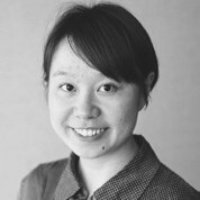
Xi Liang
Data Science Lead, Endeavour Drinks Group
In a normal day, what kinds of data / analytics activities are you involved in? I specialise in personalisation, e.g. personalised email, search etc. In a normal day, I talk with stakeholders, guide team on data science work, create new use cases and team capability building in data science.
What are the biggest challenges you face? Lack of resources and talents!
What would be the proudest or most enjoyable moment in your analytics career? The data product went on production and boosts revenues!
What advice would you give to a woman wanting to get into the analytics industry? Gets your hands dirty before even getting into the analytics industry, e.g. participate datathon, Kaggles etc.
In terms of the future of analytics, what do you think will be the most interesting aspect/s? Less than 0.5% of all data we created is ever analysed and used. In near future, we will see data analytics will increasingly play a more and more important role in business decision making.
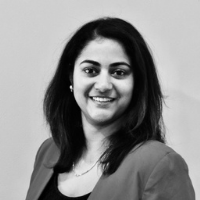
Ahana Mitra
Senior Manager of Data Science, Asahi Beverages
In a normal day, what kinds of data / analytics activities are you involved in? My normal day consists of a host of activities across the data science supply chain. The figurative day starts with building data science and analytics strategies for key enterprise initiatives, followed by a mid-morning initiative to make sure the right data is available and accessible to be able to run any analytics project for the right people, followed by a post-lunch session of reviewing our current algorithms and their efficacy, and then a late afternoon wrap-up to ensure that the enterprise is receiving the smartest-possible data-driven answers to their questions. I'm a data scientist at heart and while I don't necessarily need to code on a day to day basis, I do pick up projects once in a while where I get to apply my coding skills. Most of my time is spent on ensuring that the enterprise has the right data support and the smartest algorithms running in their best condition.
What are the biggest challenges you face? The biggest challenge with respect to data is the myth around data science being this mystical, challenging and at times a bit of black magic. My attempts everyday are to demystify data science for everyone and help connect data science to everyone's daily decision making.
What would be the proudest or most enjoyable moment in your analytics career? I'm an engineer at heart and I love building products. While I've built many products like recommendation engines or customer behavioural models, they have all been for organisations. I'm currently working on a personal project which is an affordable no-code AI tool. My proudest moment WILL BE in the future when I'm able to make a positive difference to small scale businesses by making available an affordable AI solution to help them reap the benefits of Data Science and AI, without really needing to know how to code.
What advice would you give to a woman wanting to get into the analytics industry? If you're passionate about data and believe in the value that data can drive, then you should definitely give Analytics a try. Success in Analytics (or any other industry) is driven more by passion and having the right mindset. Once that's in place, it's relatively easy to develop the skillsets!
In terms of the future of analytics, what do you think will be the most interesting aspect/s? More and more businesses, both smaller businesses and larger enterprises, are starting to value data. Affordable & accessible No code AI will play a huge role in the future and is an area I'm hugely passionate about.

Usha Nattala
Research Data Specialist, Melbourne Data Analytics Platform, University of Melbourne
In a normal day, what kinds of data / analytics activities are you involved in? Data analysis and visualization, machine learning, data wrangling, application development, intern training.
What are the biggest challenges you face? Technical: data cleanup; Social: bringing all stakeholders to the table and meshing out a mutually uplifting solution.
What would be the proudest or most enjoyable moment in your analytics career? The day our team began getting thank you messages from countless members of public after work delivered in the most trying of circumstances... it will be a day I will recollect till the end of my days with honour and joy...
What advice would you give to a woman wanting to get into the analytics industry? Believe in yourself, keep learning and don't give up, you won't know the mountain you have climbed until you look back one day and say oh how did I get here!
In terms of the future of analytics, what do you think will be the most interesting aspect/s? What it ends up telling us about ourselves.
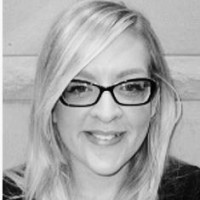
Aleena O'Neill
Chapter Lead Data Office, City of Newcastle
In a normal day, what kinds of data / analytics activities are you involved in? Responsible for establishing and leading the newly formed Data Office for City of Newcastle. Built team from ground-up and is responsible for technology strategy and direction for new data management and analytics platform. Lead and coach a team of IT professionals driving a highly engaged and professional workforce. Integral part of the IT Leadership team, reporting directly into the CIO. Responsible for leading the Data, Reporting & Analytic functions. In additional to this, I?m responsible for implemented strong governance and management of key 3rd party and partner relationships as part of extended IT function.
What are the biggest challenges you face? Data and analytic literacy across senior leaders and executives.
What would be the proudest or most enjoyable moment in your analytics career? Coaching and mentoring my staff. I love helping them grow in their professional development and encourage them to focus on the outcome. As data and analytic professionals, we have to power to find insights and make meaningful recommendations when we understand the business goals and objectives.
What advice would you give to a woman wanting to get into the analytics industry? Believe in yourself. Doubt kills more dreams than failure every will. Don't be afraid to fail. Each failure has the potential to teach you something if you are open to the lesson.
In terms of the future of analytics, what do you think will be the most interesting aspect/s? I think using cognitive technology to democratise data and analytics will be the most interesting aspect. I'm excited to see a future where analytics is accessible to everyone!

Aine Phelan
Data Scientist, Suncorp
In a normal day, what kinds of data / analytics activities are you involved in?
- A lot of white boarding to think through problem approaches and solution design.
- Domain research, customer research.
- Lots of time with the source data - using SQL to explore data sources, test data quality and build out datasets for ETL and analysis.
- Statistical and exploratory analysis and visualisation using Python, SQL, Excel.
- Pulling data into desired shapes and building out feature transformations and pipelines within the Data Science platform. Lots of Python here.
- Modelling and evaluation of models.
- Generally lots of debugging and troubleshooting along the way, especially if using a new package, process or technology.
- Making decks to feed back to stakeholders. Lots of crafting of visuals and narrative-building.
- It's all for nothing if you can't take the stakeholders on the journey with you.
What are the biggest challenges you face? From within - my own imposter syndrome. From without - shifting political or structural landscapes, priorities and budgets.
What would be the proudest or most enjoyable moment in your analytics career? Building something so transparently 'for social good' that my parents would get it in one sentence.
What advice would you give to a woman wanting to get into the analytics industry? What I have consolidated from my own experience of breaking into the analytics industry- It can be lonely on the outside trying to break in. Leverage your network. Go to meet-ups. Reach out to people you think will have good advice. - One of the beauties of data is the transferability of the skills you acquire to almost any area of interest. If you feel that your practical experience is on the light side, leverage your interests or passions and look for projects that you can really connect with to work on. This can keep you motivated and give you something to discuss with actual enthusiasm and passion in an interview. - Think about your value proposition. What are your strengths? How do you position yourself to stand out? - Know that, as a woman, your innate emotional intelligence and ability to connect will be a great and differentiating asset to you in being the data professional the future (in my opinion) will require. - Apply for the jobs! Even if you don't think you tick most of the boxes. Nobody ticks most of the boxes, especially in a field where expectations set out in job descriptions can be laughably unrealistic. You won't feel ready but you never are. Stop waiting to be perfect and start applying.
In terms of the future of analytics, what do you think will be the most interesting aspect/s? As businesses increasingly buy in to data and look to get value from it, and as ML becomes more integrated and automated, I believe we will see increased demand for the 'data translators' - the people who have the communication skills and EQ to match the data, stats and programming skills. These will be the crack data specialists who can also bridge the 2-way gap between the data and business needs. Women may be very well placed to succeed here - current literature finds that we have higher emotional intelligence ability than men. In a world where our points of difference often count against us, I'll be excited to see them work for us in this arena.
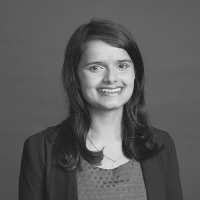
Snigdha Prasad
Manager, Taylor Fry Pty Ltd
In a normal day, what kinds of data / analytics activities are you involved in? On a normal day, my job involves analysing workers compensation claims data and/or public hospital data. While the nature of the data and models used in these two areas are quite different, the basic principles are the same: - Checking the data for obvious errors and inconsistencies (so you don't end up with a garbage in garbage out model) - Understand which variables you want to model, and which variables will be good predictors for your model. This requires a good understanding of the business problem and may involve testing hundreds of combinations, before you finalise your list of predictor variables. - Build your base model and test the predicted results against actual outcomes. This is not a one step process. Often initial models won't fit well and you will have to go back to the drawing board. Usually, you would fit and test several different versions of a model before finding one which fits well against the actual outcomes. This process can be quite long but also very rewarding once you find that model which fits well! - Finesse your model to improve its performance. This step could take a couple of hours or be done over the course of the year, depending on the project. For longer projects, it's common practice to monitor the performance of your model throughout the year and update it at regular intervals. There may be a material change in your data or a 'shock' to the system, which could render a previously well-fit model obsolete. This is why regularly monitoring and reviewing your model is important.
What are the biggest challenges you face? As a consultant, the biggest challenge is presenting your work and insights in meaningful ways to your client. As data-driven professionals, it's easy to get caught up in the technical detail and specifics of your model. By the time you present your results, it's so tempting to explain every detail of your analysis because you have put so much work into it! However, it's important to remember that the presentation isn't for yourself, it's for your client. The biggest challenge is putting the analysis you've done in the context of your client's business problem. What are the most important things my client wants to know? How does my analysis help answer their questions? Understanding your client is the most important part of any analytics project. A good understanding will not only help guide your analysis but will help you better present your results and cultivate a stronger relationship with your client.
What would be the proudest or most enjoyable moment in your analytics career? A proud moment for me was when I changed jobs in 2019. In my previous role, I had worked only on traditional actuarial projects and was largely using tried-and-tested actuarial methods for analysis. In my new role, I was immediately assigned to a public health project. This involved using data and models I had never seen before. It was a good opportunity to hone my skills and really approach the task from a first-principles basis. We built a strong model for the project and have cultivated a good relationship with the client as a result of our work. I was proud of my contribution, too. It was rewarding knowing I could draw on my maths and statistical background from university to tackle new analytics problems from first principles, even if I wasn't familiar with the data or models.
What advice would you give to a woman wanting to get into the analytics industry? Don't be afraid to throw yourself in the deep end! Have confidence in your analytical skills and don't be afraid to apply yourself in new and unfamiliar areas. Try to apply your analytical skills to a wide range of sectors at the start of your career. This will not only help improve your skills but will also give you a good idea of which areas you prefer over others. Once you have a good depth and breadth of experience, you can specialise in your areas of preference and be well on your way to becoming a leader in the industry.
In terms of the future of analytics, what do you think will be the most interesting aspect/s? Much of the work we do now (such as data cleaning and model building) could be done using artificial intelligence. Artificial intelligence could also create new opportunities for work. Think about the amount of data collected by a driverless car! We will be working with bigger and bigger datasets in the future. This means it will be increasingly important for us to have a good understanding of which variables are important and material. The higher volume of data will also open up more opportunities for exploratory and thinking outside the box type analysis. One of the most interesting aspects of the future will be how our judgment and expertise interact with an ever-increasing use of artificial intelligence.
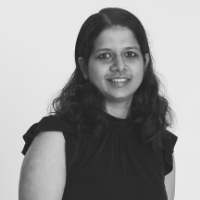
Prakash Cheruvillilkonat Revathi
Senior Data Scientist, THE ICONIC
In a normal day, what kinds of data / analytics activities are you involved in? A Day in the Life of my current role involves identifying, analyzing, and optimizing key strategic opportunities for our business. This includes understanding different processes and projects that help improve process efficiencies or better customer experience and transition it into a model/analysis that helps with better opportunities and targets. I also support senior leadership directly with their data needs. I mentor my junior data team members helping them with various analyses and software best practices.
What are the biggest challenges you face? I think with the different data processes and advanced analytics especially with machine learning, people see it as a black box that gives you the desired output always. But this black box will only work fine if we feed them with non-garbage data. Also, with my previous experiences, it?s hard to switch people from traditional systems to using smart systems unless we truly communicate to them how much time or effort these processes save them to do other useful and meaningful tasks.
What would be the proudest or most enjoyable moment in your analytics career? I think the vast amount of data that we have around us helps us to make better decisions in different aspects of business and day-to-day life. Every time a model/analysis that I have done have helped customers/business to be more efficient, it always makes me proud.
What advice would you give to a woman wanting to get into the analytics industry? There is nothing stopping you from learning or achieving great heights in the analytics industry. Since the area is so broad, pick what you want to learn and stick with a learning plan to make sure you are able to complete it in a given time frame. Check out Eventbrite and Meetup for community events around your interests. The people you meet will be the people you work with side by side in your industry and can help with mentoring and find new jobs. The extra time and effort will be worth the opportunity to feel excited by your work.
In terms of the future of analytics, what do you think will be the most interesting aspect/s? With AI now involved in all aspects of life, it would be challenging to develop ethical and responsible products in this space. I am looking forward to all the benefits that ongoing research will bring about in different fields but at the same time with governance and control over the usage of these tools.
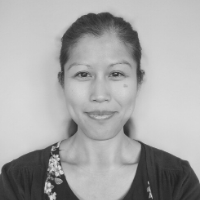
Kimly Scott
Analytics Manager, Luxasia
In a normal day, what kinds of data / analytics activities are you involved in? The kinds of data / analytics activities I am involved in on a normal day includes'- data visualisation and building dashboards for teams in my organisation - liaising with agencies - helping team members with data and reporting queries - website tracking, tagging and reporting - making/identifying recommendations on website activity and customer marketing.
What are the biggest challenges you face? The use of data in decision making across some departments in my business is still immature, so one of the biggest challenges is ensuring data visualisations and reports are presented as efficiently as possible to aid understanding and training and empowering team members so that they can accurately interpret and use the reports that are presented to them.
What would be the proudest or most enjoyable moment in your analytics career? The proudest and most enjoyable moment in my analytics career would be when I travelled to Ohio in the US to present my data visualisation at the Women in Analytics conference data visualisation competition. Participants who made it into the top 5 in the competition were invited to showcase their work at the conference. It was an honour to both talk about my work, and bring to light the topic of my visualisation, 'How Water Contributes to Gender Inequality'. My work ended up winning second place. I am really proud of this piece of work as it was one of the first visualisations I produced just as I was starting out in data visualisation and this was the first competition I had entered.
What advice would you give to a woman wanting to get into the analytics industry? My advice would be to put yourself out there and connect with other women in the industry. There are many platforms designed to focus on elevating and connecting women in the industry. Knowing that there are other women who face the same challenges as you, who have the same interests as you and being able to connect to these women for advice and friendship can really help gain confidence. Some example of these platforms are Data + Women, Women in Analytics, Ada's Tribe, She Loves Data and Measure Slack.
In terms of the future of analytics, what do you think will be the most interesting aspect/s? I think the most interesting aspect in terms of the future of analytics is data democratisation - making data available to everyone. Traditionally, data has sat behind a gate keeper or a team of gate keepers, but in this age where companies are realising how important data is to their success, data democratisation is becoming more and more common. It will be interesting to see how much data literacy grows with this trend and how companies change their practices to be more data focused and make data more widely available within their organisations.

Rose Skandari
Data Science Manager, ME Bank
In a normal day, what kinds of data / analytics activities are you involved in? I manage the newly established Data Science team at ME. It involves leading analytics projects as well as mentoring and guiding the Data Scientists and Data Analysts to ensure the high quality delivery of ML products.
What are the biggest challenges you face? There is no excitement in the life without challenges. Analytics are all about challenges which invite you to fight. Anything from data quality and understanding the business problem to developing fit for purpose solutions and deploying robust products can be challenging.
What would be the proudest or most enjoyable moment in your analytics career? There are lots of enjoyable moments in analytics life from fixing a tiny bug to developing models and solutions to various problems. But the proudest moment of all from my view is the time that you see the outcome of your team work is in production and making value to the business.
What advice would you give to a woman wanting to get into the analytics industry? Start today! Build up your analytics network. Find a mentor and plan your exciting future now.
In terms of the future of analytics, what do you think will be the most interesting aspect/s? Introduction of AI has opened up a new world in front of analytics. There are lots and lots of AI products being developed and going to be utilised which might change our lives in future.
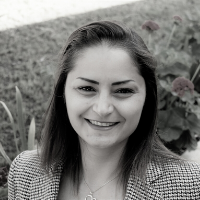
Sahar Sohrabi
Senior Data Analyst, ANZ Bank
In a normal day, what kinds of data / analytics activities are you involved in? Data sourcing and wrangling, Fuzzy matching and confidence scoring, Using APIs to automate processes Coaching Attending meetings.
What are the biggest challenges you face? Legacy systems Cumbersome and ineffective business processes Restrictions around data/platform access.
What would be the proudest or most enjoyable moment in your analytics career? When I was able to explain what an API is to completely non-technical people.
What advice would you give to a woman wanting to get into the analytics industry? To anyone who wants to come aboard: No one's born to know everything. We all learn as we go. Welcome home sis/bro. I'm here to help.
In terms of the future of analytics, what do you think will be the most interesting aspect/s? Ethics. Currently there's a fair bit of interest in developing data driven decisions. Stepping into the future the focus should expand to how ethical the outcomes/results/consequences are.

Johanna Telford
Channel Integration & Customer Analytics Manager, Suncorp Group
In a normal day, what kinds of data / analytics activities are you involved in?
I am responsible for creating Customer AI assets for Suncorp Group. This including the continual creation of customer models, behaviours and attributes to ensure a deeper understand of customer and to develop the foundations for customer journey analytics. This data is subsequently used for marketing campaigns, voice of the customer, contact centres (deep, actionable insights), and within out digital assets to improve the customer experience. My team are also responsible for creation of segmentation to drive strategic initiatives across the Group. To develop a deeper understanding of value drivers, my team created the Customer Lifetime Value model for Suncorp Group, which is used across the business to make value decisions around customers. Lastly, we provide deep dive analytics around digital data to understand customer behaviour, unpack potential process issues, and provide guidance around improvements to our customer experiences.
What are the biggest challenges you face? Data integration is a huge challenge. We have so many different sources of information that pulling this data together to create meaning and actionable insights provides a tremendous challenge.
What would be the proudest or most enjoyable moment in your analytics career? Creating the Customer Personalisation Platform. This platform produces meaningful a be actionable insights around customer behaviours, models, attributes and simplifies the process so downstream users are able to combine aspects to understand customer journeys.
What advice would you give to a woman wanting to get into the analytics industry? Develop both technical and soft skills. It is just as important to have great consultancy skills as it is to do the analytics. It is also hugely important to build great relationships and be able to tell a compelling story based on the data that resonates with the organisation's strategy. Lastly, great analytics comes from the choice to continually improve your skillset.
In terms of the future of analytics, what do you think will be the most interesting aspect/s? There are two aspects that are interesting to me:
1. Interconnectivity to build critical cohesive data structures to create internal/external data sources to drive deeper AI/Analytical insights.
2. Continual growth in machine learning.
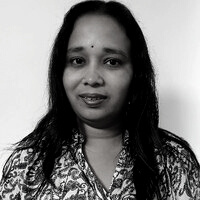
Hema Venkataraman
Senior Risk Analyst, Latitude Financial Services
In a normal day, what kinds of data / analytics activities are you involved in?
1. loss forecasting and planning
2. Enhance the current model for better performance
3. Create Market Risk report
What are the biggest challenges you face? Data integrity is one of the major issue.
What would be the proudest or most enjoyable moment in your analytics career? When I am able to solve something which was existing for long time, which is advantageous in the process.
What advice would you give to a woman wanting to get into the analytics industry? Women are right person for Analytics industry as their curious and problem solving nature of womanhood.
In terms of the future of analytics, what do you think will be the most interesting aspect/s? Women are making inroads into data science technology.
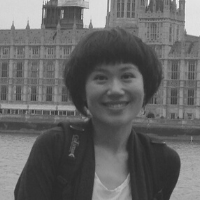
Mena Ning Wang
Independent Volunteer
In a normal day, what kinds of data / analytics activities are you involved in? Currently I integrate and visualize data addressing COVID-19 situations in Victoria and in the world as a volunteer, while writing a book on data collection.
What are the biggest challenges you face? It is challenging as well as exciting that there are always new tools, or updates on existing tools that are helpful to learn. Another challenge is that my kids really love to spend time with me and I them. One thing I try to do is to involve them while I learn new things. For example, I learned python together with my elder boy. And we will be working on Tableau together.
What would be the proudest or most enjoyable moment in your analytics career? When the audience of my DataViz told me that the graphs help them make sense of the otherwise overwhelming numbers and therefore be better informed. And when my students told me that my teaching help them realize that data science is not as hard as they thought, and is actually an interesting and fascinating field!
What advice would you give to a woman wanting to get into the analytics industry? It is interesting, exciting and rewarding. Why not give it a try?
In terms of the future of analytics, what do you think will be the most interesting aspect/s? I would say bridging the gap between the large and still increasing amount of relevant data and people?s ability to interpret and integrate these data into their decision making. Also worth noting I think are the challenges (and controversies) in AI, automated decision-making and human-computer interaction.
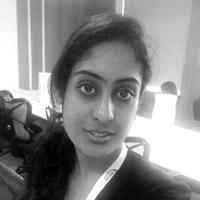
Harshita Yejella
Senior Tableau Consultant, Tech Mahindra
In a normal day, what kinds of data / analytics activities are you involved in? Requirements Gathering from various stakeholders. Dashboard Concept Design & Development. Building Interactive Tableau Dashboards. Build Insights from Data & Present to stakeholders. Building Data Marts & Perform Unit testing.
What are the biggest challenges you face? Early in the career, like any other field It can be a bit challenging if you are transitioning from another domain other than data or analytics.
What would be the proudest or most enjoyable moment in your analytics career? Every project that I work is unique and brings in several challenges from data , design and due to the wider stakeholders we work with , the recognition and satisfaction that we receive after going live in production is second to none.
What advice would you give to a woman wanting to get into the analytics industry? Understanding the data is a one aspect, building insights from it is the biggest value adder to the business.
In terms of the future of analytics, what do you think will be the most interesting aspect/s? Tools such as Alteryx, Powerbi / Tableau are upgrading with new features regularly, the time taken to develop, test and implement new projects will significantly come down in the future and will help the businesses massively.

Jenny Wu
Associate Director, KPMG
In a normal day, what kinds of data / analytics activities are you involved in? Mostly strategy and planning for data / analytics activities or functions for clients. It comes down to: 1. Data Strategy or data management strategy including maturity or capability assessment. 2. Business readiness - operating model design, delivery practices (framework and governance) and data storytelling,...,etc. 3. Compliance - regulatory requirements on data quality, how they are managed within an organisation and how controls are required. This is where data management meets operational risk.
What are the biggest challenges you face? Creative conflict.... Data is everywhere across all levels and all functional areas within an organisation. In the work I do, the biggest challenges is to overcome siloed mentality and bring the best of everyone to maximise the data analytics value chain.
What would be the proudest or most enjoyable moment in your analytics career? Every time I implemented changes (based on data analytics insights) that result into a cost savings, efficiencies, better processes, new revenue streams or business models. It can be addictive!!
What advice would you give to a woman wanting to get into the analytics industry? Develop a good support network around yourself to help you learn and grow.
In terms of the future of analytics, what do you think will be the most interesting aspect/s? As more and more data were collected (storage space has become cheaper and cheaper over the years) and techniques & tools to analyse data becomes more advanced, I see controls or standards emerging from data ethics (i.e. who can access what data and how data can be used for) and responsible AI (i.e. audit and assurance of models) perspective. Policy makers will have a major role to play in the future of analytics - an additional dimension to creative conflict!
Advancing Women in Analytics Award (Scholarship)
30% tuition fee reduction
IAPA is also supporting the Advancing Women in Analytics Award from Kaplan Business School. The Award provides any Australian citizen or permanent resident who identifies as a woman the opportunity to receive a 30% tuition fee reduction for the duration of study in a postgraduate analytics course or single subject.
Application for the scholarship consists of a form and a 500-word statement addressing criteria of advancement, awareness and advocacy. Applications and more information on the Kaplan website.
“Like IAPA, we think analytics is a great career choice. This scholarship is designed to help women get the knowledge and skills to advance their career – whether they are just starting out or seeking the next step up,” said Anna Mihaylov, Academic Director- Business and Finance at Kaplan Business School.

As part of promoting analytics careers, IAPA is part of the Women in Data Science (WiDS) Sydney Festival from 8th to 12th March. Delivered virtually, the Festival includes a lunchtime keynote and evening workshop each day.
The Friday lunchtime session, “Different Careers in the Data Realm”, features industry leaders from IAPA, LendLease, Teacher’s Health, Civita, Assignar and the Australian Computer Society.
” The gender gap remains wide, as women represent just 15-22% of data science professionals. The WiDS Sydney Festival aims to educate everyone, regardless of gender, while inspiring women and girls with role model instructors,” commented Duhita Khadepau, Director - Analytics & Data Science, Assignar, #6 IAPA Top 25 Analytics Leader in 2020 and WiDS Ambassador. Sydney WiDS Festival organisers also have plans for outreach and continued community building post-Festival. Networking activities during the Festival will help establish ongoing mentorship opportunities and training events
The Sydney WiDS Festival is an independent event organized by the Sydney WiDS Ambassadors to coincide with the global Stanford University Women in Data Science 24-hour Virtual Conference. Tickets for the Women in Data Science Sydney Festival are free and available from https://widssydney.com.au/

